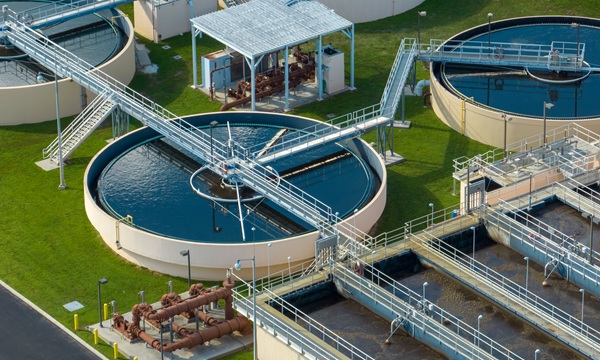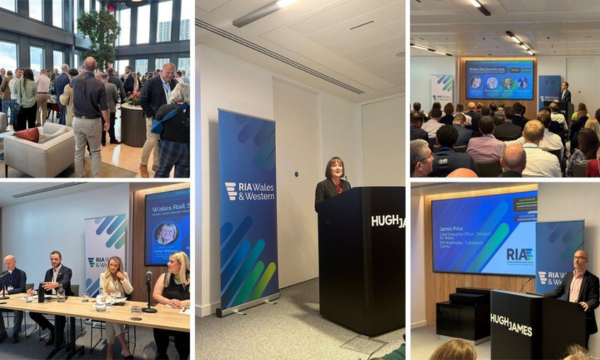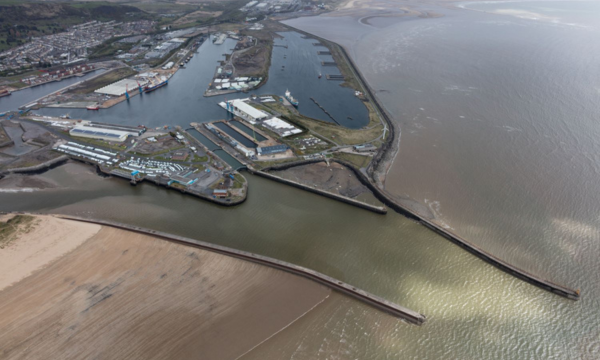Bank of England policymaker Sarah Breedon has told Welsh business leaders that the recent rise in inflation should prove to be a temporary “bump in the road” rather than a lasting shift but warned that external shocks and fragile demand mean businesses face a period of continued uncertainty.
Headline inflation stood at 3.8% in August and is expected to have risen to around 4% in September, reversing some of the progress made when inflation briefly fell back to the Bank’s 2% target last year.
Breedon is Deputy Governor for Financial Stability and a member of the Monetary Policy Committee, Financial Policy Committee, Prudential Regulation Committee and the Bank’s Court of Directors.
Speaking to an audience at Cardiff Business School, Breedon said the latest increase was being driven mainly by external and administered costs rather than renewed domestic price pressures.
She pointed to higher water bills, public transport fares and base effects from last year’s energy price falls dropping out of the comparison. Food inflation also remained elevated, reaching 5.1% in August, reflecting global supply chain shocks and climate-related disruption in key agricultural markets.
The UK imports around 40% of its food, which makes us particularly exposed to sharp changes in global commodity prices, she said. Droughts in Brazil had pushed up coffee prices, while plant disease and heavy rainfall in parts of Africa had affected cocoa production.
Breedon emphasised that such shocks are most concerning when they trigger persistence through wage demands and price-setting behaviour. Compared with the 2022 inflation peak, she said, the current environment made that outcome less likely.
“The labour market is much looser and the demand environment is weaker too, all of which mean that the chance of follow on wage and price rises is much lower now than then,” she said.
Data from the Bank’s agents and recent surveys suggest wage growth is already easing, with settlements expected to fall back to around 3.8% by the end of the year and lower again in 2026. She argued that this should translate into a gradual slowdown in services inflation, which has remained stubbornly high.
Services inflation is running just under 5% in the UK, compared with closer to 3% in the Euro area. The difference, Breedon explained, is largely explained by administered prices and private rents.
Market-based services such as leisure and hospitality are growing at similar rates across advanced economies, she said, adding that rents and regulated costs explain more than 90% of the UK’s divergence from Europe.
On monetary policy, Breedon said interest rates remained restrictive despite recent reductions, with the effect of earlier rises still feeding through to households and firms. The household savings ratio has climbed to more than 10%, suggesting precautionary behaviour is restraining consumer demand.
Survey evidence also shows that firms are now more concerned about weaker demand than they are about rising costs.
“In late 2022 around twice as many firms…were concerned about rising inflation as were concerned about falling demand,” said Breedon. “As of September this year, that ratio has inverted.”
Looking ahead, Breedon warned that the risks to inflation are balanced on both sides.
“There are reasons to believe we have entered an age of supply shocks,” she said.
“We’ve experienced a series of repeated supply shocks over recent years, and transformational trends like climate change and geopolitics means it’s possible, perhaps even probable, that we see more of these as we look ahead.”
Her central judgement, however, remains that the disinflationary process is still intact:
“The good news is that the hump reflects external shocks, and in the current environment it’s unlikely, in my judgment, to lead to additional inflationary pressures. Moreover, I’ve not seen any evidence yet to suggest that the underlying disinflationary process from past shocks is veering off track – so far so good. However, the path ahead is not assured.”














